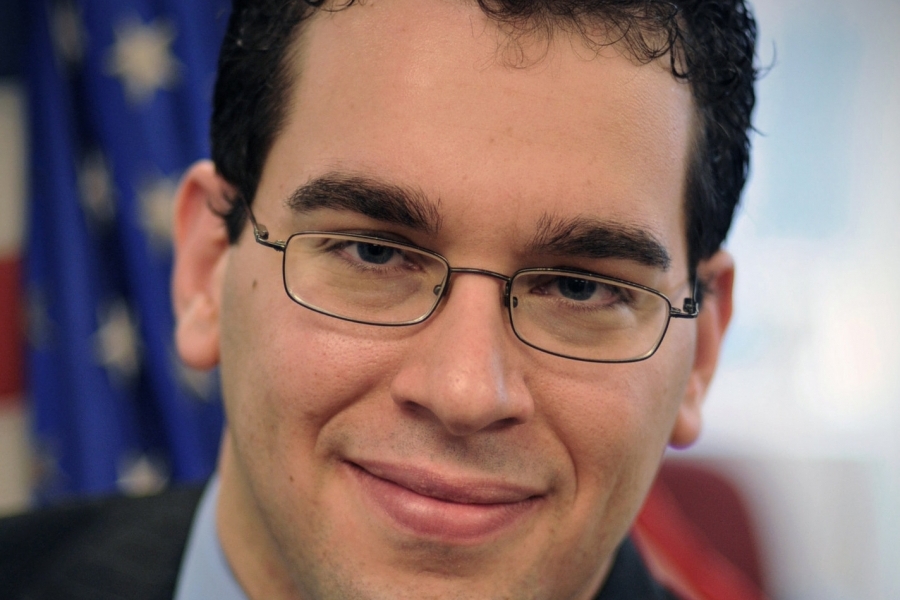A state lawmaker last week introduced the first-ever legislation that would prohibit accused murderers of invoking a “panic” defense based on a victim’s LGBT identity.
State Rep. Michael Schlossberg (D-132nd Dist.), who represents Lehigh County, introduced HB 1509 on Aug. 25.
The state’s criminal code currently allows consideration of voluntary manslaughter, downgraded from a murder charge, when, among other factors, “serious provocation” can be demonstrated. Schlossberg’s bill would amend the provocation stipulation to clarify that the term “does not include the discovery of, knowledge about or potential disclosure of the homicide victim’s actual or perceived gender identity or expression or affectional or sexual orientation.”
Schlossberg is joined by cosponsors Reps. Mark Rozzi (126th Dist.), Stephen Kinsey (201st Dist.), Dan Frankel (23rd Dist.), Daniel McNeill (133rd Dist.), Mark Cohen (202nd Dist.) and Mike O’Brien (175th Dist.).
Schlossberg told PGN this week that he happened to read about a case in which the “gay-panic” defense was invoked and was surprised to learn that such strategies weren’t banned in Pennsylvania, a sentiment shared by several fellow lawmakers.
“It was one of those things you just sort of come across by accident. I saw that it was used and I was just shocked and horrified. My first thought was, How can something so archaic and barbaric be legal in the 21st century?” Schlossberg said. “That’s a pretty common feeling with other legislators I’ve talked to about this, just genuine surprise. A lot of people didn’t think something like this still happened, but it does.”
Locally, a judge prohibited the defense team for Raymond Armstrong, accused of a 2008 murder, from using a “gay-panic” defense, and the notion of such a defense has also been raised in this past spring’s murder of Scott Bernheisel, whose body was found in a suitcase near Philadelphia International Airport. And Charles Sargent, the defendant in last year’s murder of trans woman Diamond Williams, proposed “trans panic” as the reason he killed her, though that case has yet to reach trial.
“The defense and variances of that defense work themselves into far too many criminal cases we see in Philadelphia and I’m sure across the nation,” said Nellie Fitzpatrick, director of the city’s Office of LGBT Affairs. “Basically what it looks like is a horrific crime of violence happens and this type of defense gives the defendant an opportunity to say, ‘Oh well, because of your sexual orientation or because of how I perceived your gender, I saw red and lost it.’ To me, that really isn’t even a panic defense, it’s a license to kill.”
The bill was introduced the same week the long-stalled antibias bill made its way back into the House and Senate.
Fitzpatrick said both issues seem to go hand in hand.
“When I explain the need for nondiscrimination laws, it’s easy to talk about how we need protection when it comes to employment and housing, but we need protection in all sorts of areas, and that includes in the moment of death. It’s about the dignity of the human being who’s been murdered, for their families and for the people seeking justice for them. To be discriminated against in your final moment is barbaric,” she said. “The more we can have people find safe housing and employment, maybe we can start limiting the rates of victimization we’re seeing. While these are very different things happening in Harrisburg right now, they’re both about basic human dignity.”
Schlossberg acknowledged that the current makeup of the legislature could make it difficult for the legislation to advance this session, though he is determined to take it as far as possible, and is looking for Republican support as well.
“It’s certainly difficult for Democratic pieces of legislation to get over the finish line right now, and we still definitely struggle to get pro-LGBT legislation moved forward,” he said. “If it were to come up for a vote, I have no doubt the vast majority of Republicans would vote for it. It’s the same thing with the antidiscrimination legislation; if that were to come up for a vote, I bet it would get about 160 votes out of the 203 in the House. It’s a difficult thing to justify opposition to discrimination anymore.”

